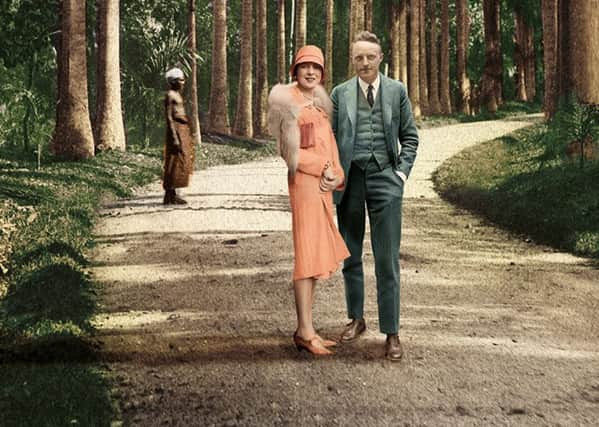Book review: So Much Life Left Over, by Louis De Bernières


It’s a rambling saga of an extended family, a study of a marriage beginning in love and turning sour, of Daniel’s efforts to bond with his children despite his estranged wife’s determination to make this difficult. There are grim and painful scenes, but there is also much to delight. De Bernières likes his characters and invites the reader to share the pleasure he has in creating and presenting them. Several are eccentric to the point of craziness, others simply content to go their own way, indifferent to what the world thinks of them. Some flourish, others fall into a decline. The spectre of the last war and the casualty lists is ever present; anxious awareness of the coming one casts a dark shadow on all but the least observant.
Interestingly De Bernières has so completely immersed himself in the period of which he is writing that his book, in its vitality and shapelessness, recalls bestsellers of the 1920s and 30s: novels by Compton Mackenzie, Hugh Walpole, Francis Brett Young, even Warwick Deeping, all writers who now seem to have been more concerned with getting their people and their story on the page, than with how they were to be seen and presented. Like all these novelists De Bernières invites, even demands, that you read fast and lose yourself in his story, caring little for improbabilities.
Advertisement
Hide AdHe has no time for the precepts of the creative writing schools. Show, don’t tell: he shows when he feels like doing so, tells when this is more convenient. The point of view shifts when it suits him to shift it; this allows him to enter any character’s mind when he chooses to do so. Some may criticise him for lack of method, for his indifference to structure. According to theory this criticism is fully justified, and some readers may judge that what the novel gains in fluency it loses in intensity.
There are characters who suffer, some never recovering from losing a lover in the First World War. Daniel, the hero, is bruised by experience. One character has endured hideous experiences as a prisoner of war in the hands of the Turks. Another, once a fine classical scholar and brave soldier on the frontiers of the empire, descends into poverty and alcoholism. Scenes set in Germany in the late Thirties mix comedy of misunderstanding and the tragedy of coming to see how things really are. De Bernières never pretends that much in life isn’t harsh, cruel and miserable. The reader is likely to guess that Daniel will come to suffer the most painful of blows.
So it’s in no sense an escapist novel, not one that pretends that in the end everything will turn out for the best, and that eventually the good will be rewarded for their endurance and virtue. Nevertheless it is written with such vitality, conveying such a strong sense of the pleasure the author has taken in the act of creation that it is essentially a happy novel, not only because it is well-peopled by comic and eccentric characters, but also because De Bernières extends the generosity of his judgements to even those characters who behave badly and know they are behaving badly, but nevertheless persist in their course.
It’s an unusual novel, and I would guess that many readers, once they have launched themselves into it, will read it straight through, forgetting whatever it was they should have been doing instead of reading. There are dark times, but the sun keeps breaking through.
So Much Life Left Over, by Louis De Bernières, Harvill Secker, 275pp, £16.99